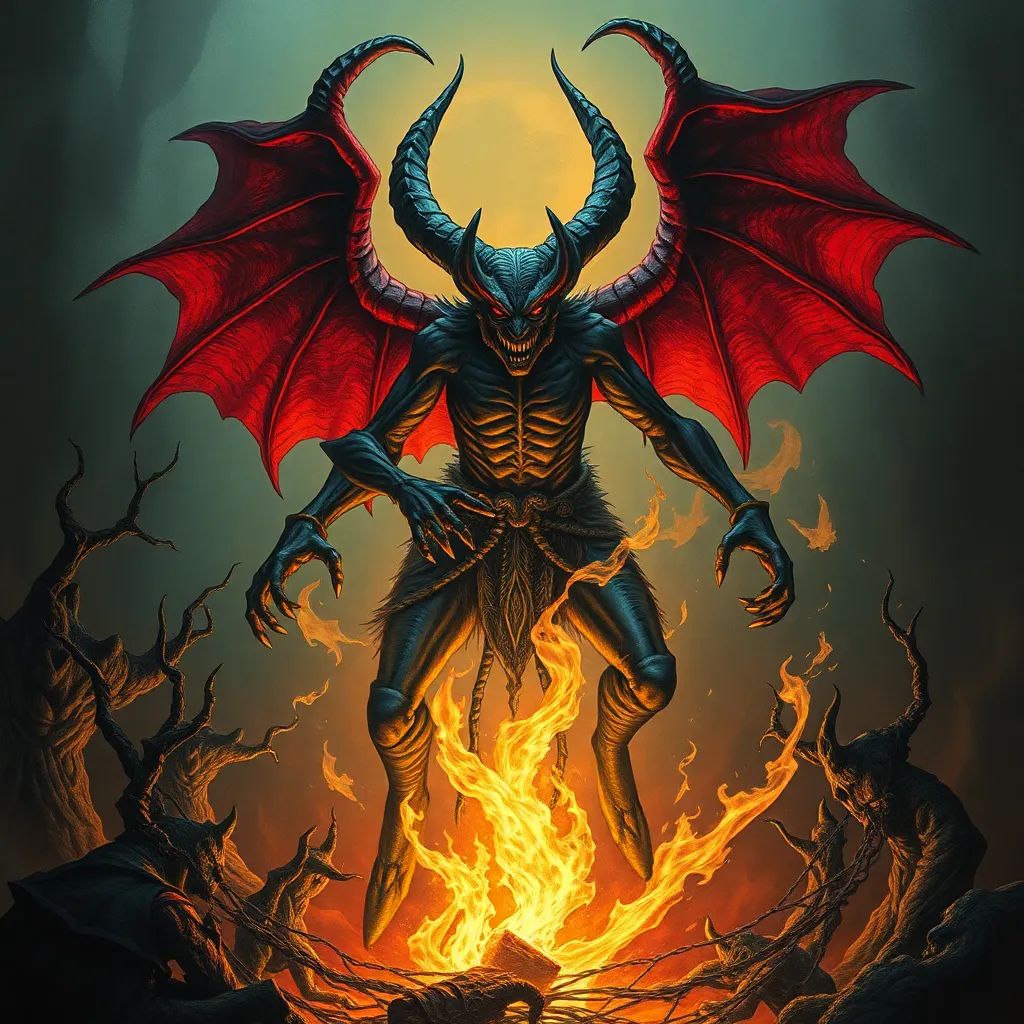Empusa’s Legacy in German Legends: The Demon’s Influence on German Folklore and Literature
I. Introduction
Empusa, a captivating figure in ancient mythology, has intrigued scholars and enthusiasts alike for centuries. In Greek mythology, she is depicted as a demonic entity associated with seduction and treachery. Her portrayal as a shape-shifting temptress has made her a compelling subject in various narratives. Understanding Empusa’s legacy is crucial for appreciating her influence on German folklore, where her character has evolved and permeated cultural narratives.
This article explores how Empusa’s legacy manifests through various narratives and cultural motifs in German literature and folklore, shaping perceptions of female demons. By examining her origins, characteristics, and adaptations in German traditions, we can gain insights into the complex interplay between mythology and cultural identity.
II. Historical Context of Empusa
Empusa finds her roots in ancient Greek mythology, where she was described as a servant of Hecate, the goddess of magic and witchcraft. Often depicted as a shapeshifter, she was said to prey on young men, embodying the fears and desires associated with femininity and temptation.
As the concept of Empusa transitioned into Germanic folklore, her character underwent significant transformations. The blending of Greek and Germanic traditions led to new interpretations of her traits and roles within stories. Comparisons can be drawn between Empusa and other mythological figures in German traditions, such as:
- Die Lorelei – a siren associated with seduction and danger
- Witch figures prevalent in European folk tales
- Valkyries – female figures who choose those who may die or live in battles
These comparisons highlight the shared themes of femininity, power, and danger that permeate folklore across cultures.
III. Empusa’s Characteristics and Symbolism
Empusa is often characterized by her striking physical attributes, which include the ability to transform into various forms, including that of a beautiful woman or a fearsome beast. This duality symbolizes the complex nature of femininity, where beauty can hide danger.
Symbolically, Empusa represents:
- The allure and peril of female sexuality
- The fear of the unknown and the other
- The struggle between desire and danger
These symbolic meanings reflect broader societal views on women and their roles, often casting them as both nurturers and threats.
IV. Empusa in German Folklore
In German folklore, Empusa and similar demonic figures appear in various folktales, often serving as cautionary symbols. These tales illustrate the consequences of succumbing to temptation or straying from moral paths. Regional variations in the portrayal of Empusa highlight how local cultures interpreted her character differently.
Notable folktales include:
- The tale of the “Beautiful Woman of the Woods,” a story warning against trusting strangers.
- Legends from the Black Forest, where Empusa-like figures lure travelers into peril.
In these narratives, Empusa serves as a warning, emphasizing the importance of vigilance and moral rectitude.
V. Empusa’s Influence on German Literature
Empusa has inspired numerous literary works throughout German history. Her character manifests in poetry and prose, often adapted to reflect contemporary themes while maintaining her core attributes.
Key literary works influenced by Empusa include:
- Goethe’s “Faust” – where themes of seduction and moral compromise echo Empusa’s essence.
- Heinrich Heine’s poems that explore the duality of beauty and danger.
- Modern interpretations in fantasy literature that draw on her shapeshifting abilities.
These adaptations reveal how Empusa’s thematic elements, such as temptation and the complexity of female power, resonate through time.
VI. The Evolution of Empusa’s Image
Over the centuries, the portrayal of Empusa has evolved significantly. In early interpretations, she was seen primarily as a malevolent figure, while modern adaptations often present her in a more nuanced light. Today, Empusa can be found in various forms of media, including literature, film, and popular culture.
The impact of cultural shifts has played a crucial role in this evolution. As societal attitudes towards women have changed, so too has the representation of figures like Empusa. Contemporary works may emphasize her strength and agency rather than solely her monstrous traits.
VII. Empusa and Gender Dynamics in Folklore
The intersection of gender, power, and monstrosity is a critical aspect of Empusa’s narrative. She embodies the fears and anxieties surrounding female power, illustrating how societies have historically portrayed women who defy traditional roles.
Feminist readings of Empusa’s role in folklore reveal complex layers of meaning. Scholars argue that she serves as a reflection of societal attitudes towards women, representing both the threat they pose and the power they wield.
In this context, Empusa becomes a symbol of:
- Female empowerment and agency
- The societal fear of women who embrace their sexuality
- The struggle for recognition in a patriarchal society
VIII. Conclusion
Empusa’s influence on German folklore and literature is profound and multifaceted. From her origins in Greek mythology to her adaptations in German narratives, she has shaped cultural perceptions of female demons and the complexities of femininity. The ongoing relevance of Empusa in contemporary culture speaks to the importance of preserving folklore and understanding its roots.
In examining Empusa’s legacy, we gain insights into the interplay between mythology, gender, and societal values, enriching our appreciation for the narratives that continue to resonate today.




